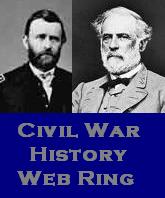The 6th Cavalry finally began campaigning in March 1862. They remained in camp at Camp East of the Capitol until the 10th, then received abrupt orders to break camp and move. As Captain August Kautz of Company noted in his diary,
“March 10. – At breakfast this morning the order came to march at 11 with three days’ provisions and forage. We were, of course, very busy until the hour to leave. I could not pack up all my things. It rained a good portion of the day. It was after dark when we reached Fairfax Court-House.” (Supplement to the OR, Vol 1, pg 361)
By the end of the month, the majority of the regiment would be on the Peninsula near Fortress Monroe. Company C, not yet at full strength, remained in Washington. Captain Brisbin of Company L was in Philadelphia this month, still recruiting his company, along with 1st Lt Henry Tucker. The regiment's assigned strength this month was 890 officers and enlisted men in the ten active companies.
Of the 42 officers assigned, only 23 were listed as present for duty, including Assistant Surgeon J.H. Pooley. 12 of the missing 14 were on detached service. March saw the sudden departure of the regiment’s commander, LtCol William H. Emory. He was promoted to brigadier general of volunteers on March 27, 1862 and assigned to the command of the 1st Brigade, Cavalry Reserve, Army of the Potomac. He took two other officers from the regiment with him. Lieutenants Joseph Audenried and James F. Wade were appointed to his staff the following day as assistant adjutant general and aide de camp respectively. Major Lawrence A. Williams assumed command of the regiment. Captain David McM. Gregg was promoted to colonel of volunteers and commanding the 8th Pennsylvania Cavalry. Captain August Kautz was sick at Fortress Monroe at the end of the month, and 2nd Lt Andrew Stoll was sick in Washington.
The regiment had 849 enlisted men at the end of the month, but only 745 present for duty as campaigning began. Health conditions improved in the camp as the weather improved. A total of 58 troopers were sick, the majority of them absent in hospitals from Pittsburgh to Washington. 33 continued to serve on extra duties away from the regiment, mostly as teamsters for the Quartermaster Department. Two were in arrest or confinement. Two troopers were absent on leave, and one was absent without leave.
Private Jackson Loyd enlisted in Company H on March 19, 1862. Frank Gormley was transferred from Regimental Quartermaster Sergeant to private in Company E on March 1st. Sergeant Chas. Gilliams of Company M was advanced to 2nd Chief Bugler and assigned to the regimental staff. Corporal William Shorts of Company K was discharged by order on March 22nd in Alexandria, and four privates were discharged for disability.
Eleven men deserted from the regiment this month, all of them during the last ten days of the month as the regiment was embarking for the peninsula. Two soldiers died in March. Private James McCormick of Company I died in the hospital at Camp East of the Capitol on March 6th. Private John W. Jones of Company G died of disease in Alexandria, Virginia on March 18, 1862.
Friday, March 21, 2008
Subscribe to:
Post Comments (Atom)


2 comments:
Don,
Forgive me, but I couldn't find your e-mail address so I'm leaving this unrelated comment. I read on Eric Wittenberg's blog that you are the person to contact for items relating to the 4th US Cavalry.
I'm doing some research on the Siege of Corinth and the Battles of Farmington in May of 1862. As you probably know, three companies of the 4th Cavalry were at Farmington, and they took part in the "famous" charge of the 2nd Iowa Cavalry at that place. Besides the James Wiswell letters at Duke University and a few newspaper clippings, I haven't come across anything else on the 4th's involvement in the Siege. I was wondering if you had any suggestions or have come across anything substantial that I just plain missed. The 4th's actions during the Siege, and especially at Farmington, have been largely overlooked.
I too loved the Sergeant Larson book - but I looked high and low in the text and didn't find anything mentioning the Siege of Corinth or Farmington.
Chris Slocombe
christopherslocombe@gmail.com
Chris,
Thanks for stopping by. I'll handle some of your questions by private email, but to add a little clarification:
Larson doesn't mentioned Farmington because his company hadn't rejoined the regiment yet at that point. For the same reason, Bates doesn't mention the fight in his letters either.
Have you checked the book "Minty and the Cavalry"? It has a great deal of information on the 4th US. Also, I'd recomend taking a look at the records at the USAMHI in Carlisle, PA.
Post a Comment